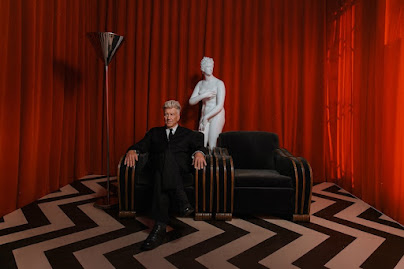There are certain voices in the din of human expression that, once extinguished, leave not a silence but an absence – a negative space filled with the echo of the void. David Lynch’s passing feels precisely like that. A man who spoke to us, often wordlessly, in the haunting drone of electricity, the tremor of wind in the trees, and the uncomfortable stillness of dreams unraveling – Lynch did not merely create; he conjured. His artistry remains a map of the unknowable, charting terrain where the familiar becomes foreign and the ordinary, sinister. That he is gone now feels both impossible and inevitable, like the very denouement of one of his films: something that should have been predicted, yet remains unfathomable.
There is, of course, the usual language of mourning for an artist of his stature: accolades, platitudes, a parade of "visionary" and "innovator." And yes, Lynch was all of these things – arguably more so than most who bear such titles. Yet the words feel insufficient, as if we are trying to describe the sharp sting of a live wire with only the vocabulary of its utility. Lynch was not merely a filmmaker or painter or composer; he was a conjurer of moods, a conductor of the grotesque and the sublime. From the gory, industrial ether of Eraserhead to the Americana-turned-nightmare of Blue Velvet to the quiet, trembling heartache of The Straight Story, Lynch offered us not merely stories, but portals. His works were dreams we willingly entered, knowing full well that the exit was neither marked nor guaranteed.
And then there is Twin Peaks, that great, bewildering opus, a show whose title now evokes more than the name of a fictional town but an entire state of being. To watch Twin Peaks: The Return was to experience something bordering on transcendence – or madness. How does one even articulate the journey of Episode 8, with its mushroom-cloud genesis of terror, its blackened scream of creation, its frogs and cockroaches and synchronized dancers? It was a riddle folded into a memory, placed on a turntable spinning counterclockwise. I loved every inexplicable moment of it. I hated it, too. I wanted to throttle Lynch for crafting something so perplexing, so willfully opaque, so utterly devoid of compromise. And yet, who else would dare?
It is a peculiar mourning to lose an artist who seemed to exist on the fringes of human experience, half in our world and half in some other, stranger dimension. Lynch never gave us the comforts of resolution, and so it is fitting that his departure feels similarly unresolved. What, after all, are we to make of the man whose works were at once grounded in the small-town banalities of cherry pie and coffee, and yet filled with visions of men behind dumpsters, pale-faced specters, and ominous red curtains? What do we do with the creator of Laura Palmer’s scream, Frank Booth’s oxygen-huffing depravity, and Henry Spencer’s mewling, alien child? It is as if Lynch came to us speaking a language we did not know we understood until we heard it – a dialect of intuition and unease. His passing feels like the loss of a translator, the one who made sense of our collective nightmares.
And yet, there is joy, too, in this mourning. There must be. Lynch would demand it. For as much as his works trafficked in horror and despair, they also shimmered with beauty, humor, and grace. Who can forget the pure kindness of Alvin Straight journeying across the Midwest on his lawnmower, or the absurd, unbridled delight of Gordon Cole bellowing about coffee? For every dark corner Lynch explored, he also found light–albeit a light tinged with shadows, flickering, electric, but light nonetheless. His works remind us that the grotesque and the sublime are not opposites but neighbors, separated only by the thinnest of veils.
As I sit here, reflecting on his life, I find myself haunted by one question, as simple and profound as the owl’s unblinking gaze: what was it all about? And perhaps that is the highest tribute to Lynch’s legacy – that he leaves us with questions rather than answers, with a sense of mystery rather than closure. To mourn David Lynch is to mourn not just the man but the tantalizing unknowability of his art, the feeling of wandering through a darkened hallway with no end in sight, guided only by the faint hum of electricity.
And yet, I cannot resist, in my grief, one final complaint. David Lynch, what was Twin Peaks: The Return? What was it, really? Was it a meditation on loss? A critique of nostalgia? A cosmic joke? I wanted answers, damn it. I wanted to know why Cooper became Dougie, why Audrey danced, why Laura screamed. But, of course, Lynch would never oblige such a demand. To ask for answers is to miss the point entirely. It was never about the answers; it was about the journey, the dread, the beauty, the wonder.
And so, here we are, left with nothing but the traces of his genius, the lingering scent of scorched oil and Douglas firs, and the knowledge that we may never fully grasp what he was trying to say – or if he was trying to say anything at all. Perhaps that is his final gift to us: the permission to dwell in mystery, to embrace the unknown, to sit with our discomfort and, in doing so, find something ineffable. Goodbye, David Lynch. You were a dreamer, and you taught us to dream, too – even if those dreams were often nightmares. May your curtains never close.




No comments:
Post a Comment